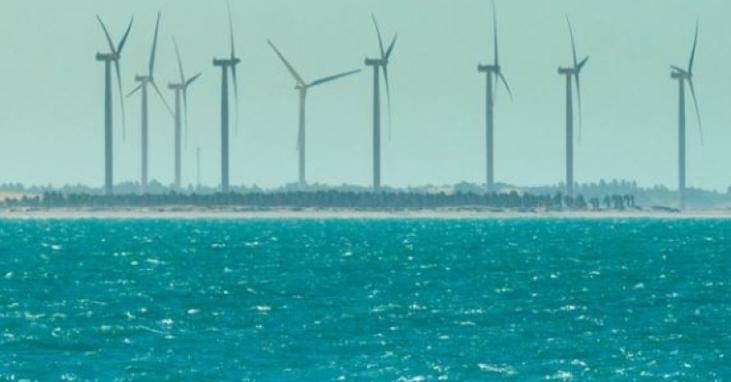Climate Investment Funds Approves $70 Million to Enable $9 Billion Energy Transformation in Brazil

|
Listen to this story:
|
The governing board of the Climate Investment Funds (CIF) endorsed a $70 million plan to support grid flexibility for clean energy integration in Brazil.
The concessional finance from CIF’s Renewable Energy Integration (CIF REI) investment platform will accelerate an ambitious green energy transformation in Brazil. As part of the plan, the country is set to double renewable energy capacity, reduce emissions by at least 57 million tons of CO2 equivalent, accelerate large-scale hydrogen production, and advance clean energy access for millions of people.
Brazil estimates that the funding will mobilize $9.1 billion from partners, including $8 billion in private investments, for their plan implemented by the Inter-American Development Bank and the World Bank Group. That projection represents a co-financing ratio of 1:130, even more than CIF’s average of 1:10 for clean energy investments.
Brazil plans to scale up green hydrogen production in its Pecém hub, near the city of Fortaleza, which has a projected installed capacity of 6 gigawatts by 2034. Hydrogen production is on track to boost green economic and market development, and could be replicated across Brazil including the northeastern region. A robust green hydrogen value chain could make Brazil, which exports 20% of the world’s iron, a leader in green steel production.
The program seeks to promote energy as a common good for all Brazilians, harnessing a modernized electricity grid. It is set to improve reliable access to clean energy for 3.1 million people, promoting development and social and economic inclusion, notably for remote Indigenous peoples and local communities.
With an upgraded grid, all Brazilians could take a more active role in electricity production, with the opportunity to become “prosumers” – producers and consumers of energy. Under the plan, hydropower plants with a capacity of 4,947 megawatts will be modernized, resulting in a reduction of greenhouse gas emissions.
See related article: Climate Investment Funds to Deploy Over $350 Million for Nature-Based Solutions Globally
CIF REI helps low- and middle-income countries develop more flexible and resilient energy systems. Demand for renewable integration support is high. 60 developing countries—one-third of the world’s nations—applied for CIF REI funding. In February 2023, Colombia received $70 million in concessional finance as part of the program.
Endorsed by the G7 in 2021, CIF REI is supported by financial pledges from the United Kingdom, the Netherlands, and Switzerland. Building on CIF’s nearly 15-year track record in climate finance mobilization, the program works through multilateral development bank partners to offer a toolbox of flexible cost and risk-bearing financial instruments, alongside technical assistance, tailored to the renewable energy integration needs of each individual country.
Alexandre Silveira, Minister of Mines and Energy of Brazil:
“Brazil’s social and economic development needs rely on increasing clean energy supply. To ensure fast and sustained integration of renewable energy into the system, we must tap from the grid as much flexibility and efficiency we can. Some emerging solutions and technologies are not yet commercially viable, and we need concessional finance to foster new markets. With CIF funding, we will speed up the transformation needed at this critical moment, making clean energy available for present and future generations.”
Johannes Zutt, Brazil Country Director of the World Bank:
“We are grateful to the CIF-REI donors and to the Government of Brazil. The intervention proposed by the World Bank as part of the Investment Plan approved today will support the development of the green hydrogen hub at the industrial and port complex of Pecém, in Ceará. The World Bank Group has been at the front of the development of low carbon hydrogen markets worldwide and we believe that hydrogen can play a crucial role in integrating further volumes of renewable electricity, while facilitating economic development in the Northeast region and beyond.”
Morgan Doyle, Brazil Representative of the Inter-American Development Bank Group:
“The CIF Renewable Energy Integration Investment Plan of Brazil aims to accelerate the decarbonizing of the Brazilian energy sector by deploying innovative technologies, emphasizing the importance of gender equity and social inclusion. The IDB Group is pleased to support Brazil in its important effort to decarbonize its energy matrix.”
Mafalda Duarte, CEO of the Climate Investment Funds:
“I salute Brazil’s strides in building a 21st century clean energy economy. Through this new investment, which is on track to mobilize billions of dollars from the private sector and other partners, Latin America’s largest nation will dispatch even more renewables onto the grid and reliably deliver it to the communities that need it. Together, we can help Brazil realize its potential as a world leader in green industries. CIF stands ready to support other developing countries striving to reach similar objectives.”








